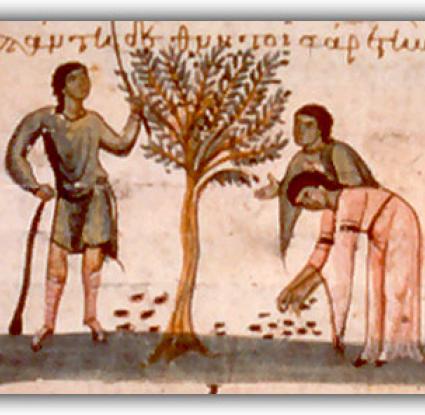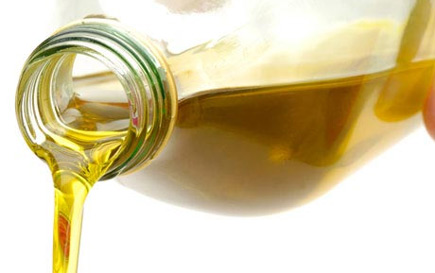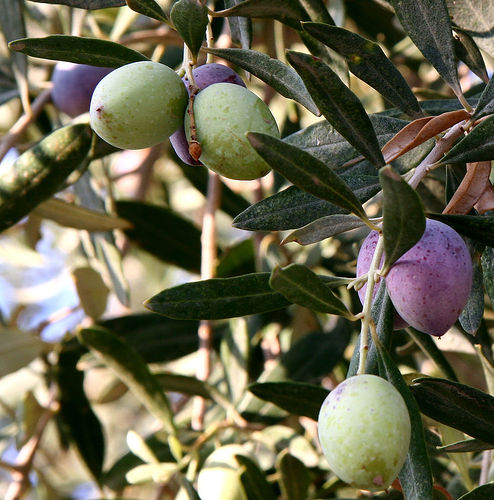Oil, olive oil.
Name - Origin
Λάδι.
Byzantine sources mention different recipes for olives. The Byzantines preserved their table olives in containers with either salt and lemon or salt, oil and honey or water and vinegar or even with grape must (Dalby 2003, pp. 178-179).
Functional and symbolic role
Apart from cereals and wine, oil (and specifically olive oil) completes the triptych of ‘production, trade and diet’ of Cypriots during the Byzantine period. According to a relevant study by M. Gerolymatou (2008, pp. 80-81), oil was less important in trade than what is generally believed. Byzantine writers report that the price of oil sold in the market of Constantinople ('Theophanous', 304.23-305.3) was significantly higher than that of wine, possibly indicating that oil was not an everyday item, as one would expect from a Mediterranean community (Gerolymatou 2008, p. 81).
A Christian Orthodox would receive olive oil as a ‘seal', starting with his baptism and ending with his burial. According to Pseudo-Dionysius the Areopagite, during the burial and as the coffin would be placed down into the grave, the priest would pour oil on the deceased forming a cross. According to Chrysostomos, with "myrrh and oil and the anointing of baptism" they would seal the deceased by forming a cross and then they would cover him with earth (Koukoules 1951, p. 189).
Additional information and bibliography
There are many references on the use of olive oil in Byzantine recipes, despite its high cost. In the Byzantine era, Cyprus must have been one of the regions in which olive oil production continued to be one of the main occupations of the rural population. It is no coincidence that sites and finds associated with oil production in Byzantine times have been excavated at various locations in Cyprus, such as in Amathus - Agia Varvara and in Chrysopolitissa in Paphos (Hadjisavvas 1996, p. 135).
M. Gerolymatou, 2008. Αγορές, Έμποροι και Εμπόριο στο Βυζάντιο (9ος-12ος αι.). Athens: National Research Foundation.
A. Dalby, 2003. Flavours of Byzantium. Devon: Prospect Books.
S. Hadjisavvas, 1996. "The economy of the olive", p. p. 127-138. In V. Karageorghis & D. Michaelides (eds.), The Development of the Cypriot Economy from the Prehistoric Period to the Present Day. Nicosia: University of Cyprus and the Bank of Cyprus.
F. KouKoules, 1951. Βυζαντινών Βίος και Πολιτισμός. Τόμος Δ. Athens.
Athanasios Vionis



